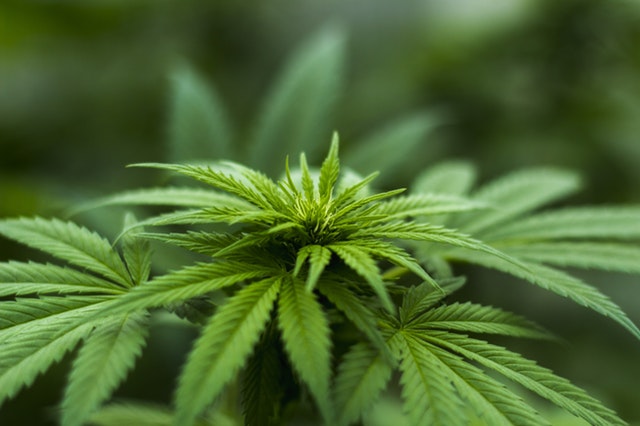
Cannabidiol products have been sweeping the market ever since legislation prohibiting the sale of cannabis products has become less pervasive around the world, and particularly in the United States. Cannabidiol, or CBD, is a marijuana cannabinoid compound that differs from the well-known THC in that it has no psychotropic effects upon consumption—CBD does not cause a physical or mental high. This trait has made it very popular for medical researchers.
CBD works by attaching itself to certain bodily receptors. Our bodies have two cannabinoid receptors, called CB1 and CB2. Our brain’s CB1 receptors handle, among others, mood, coordination, emotions, and pain. CB2 receptors, which mostly exist in our immune system, deal with pain and inflammation. Current research suggests that CBD encourages our bodies to use their own cannabinoids rather than directly acting on our receptors.
The ongoing medical research suggests that CBD can help combat a number of physical and mental conditions.
1. CBD for Epilepsy
Recently, the Food and Drug Administration approved CBD-based medication called Epidiolex that treats two severe forms of childhood epilepsy. The two conditions are called Lennox–Gastaut syndrome, which affects children between the ages of three and five, and Dravet syndrome, which is a rare, genetic form of epilepsy that appears in the first year of someone’s life.
A 2014 Epilepsia review stated that CBD has anti-seizure qualities and is low-risk to people who suffer from epilepsy. Current studies suggest that CBD could also help treat disorders with links to epilepsy, like neurodegeneration and psychiatric diseases.
2. CBD for Anxiety and Depression
Many people who suffer from an anxiety disorder would normally avoid the consumption of cannabis because THC can often worsen anxiety symptoms, and even cause paranoia.
CBD, however, may ease some of those symptoms without running the risks of producing the side effects of its psychoactive cousin, according to a review from Neurotherapeutics. Besides general anxiety, research also suggests that CBD could help with its more severe forms, like post-traumatic stress disorder and obsessive-compulsive disorder.
Clinical studies have also suggested that CBD has antidepressant qualities. Research has found that its antidepressant effects were uninterrupted, acted fast, and were similar to common tricyclic medicine Tofranil, or imipramine.
3. CBD for Acne
Acne is most common in teenagers, but it still affects more than 9% of people. There are multiple causes behind acne outbreaks. It is assumed to be due to a number of different factors including bacteria, genetics, inflammation, and our bodies’ inflamed sebaceous glands, which causes outbreaks of sebum, the oily secretion that forms the layer of acne.
A study from the Journal of Clinical Investigation from 2014 discovered that CBD, due to its anti-inflammatory properties, could help acne sufferers reduce the amount of sebum that their body produces. Another study concluded that CBD might be one of the safest and most effective ways to combat the condition, again due to its powerful anti-inflammatory traits.
4. CBD for Nausea and Lack of Appetite
People with many different conditions suffer from regularly having an upset stomach and loss of appetite, often as a result of the former. One study showed that CBD reduced vomiting and nausea. Other studies have suggested that, when consumed in low doses, CBD could even reduce the vomiting and nausea that toxic drugs induce.
Dronabinol is a THC-based drug that has been approved to combat nausea and vomiting in humans, but more clinical research is required on the anti-emetic benefits of CBD. The National Cancer Institute has recently reported that CBD can boost the appetite by binding to cannabinoid receptors or activating our body’s existing receptors.
5. CBD for Rheumatoid Arthritis
Because CBD has anti-inflammatory qualities, it can offer relief from joint pain, swelling, and inflammation, as well as reduce the destruction of joints and hinder the progression of diseases. A study showed that administering CBD guarded joints against damage, improved arthritis, and decreased its progression.
The first trial on Sativex, a spray containing CBD, showed that administering it for five weeks significantly improved pain and inflammation when moving or resting, as well as the quality of sleep, without observing any serious side effects. You can also get CBD topical creams that are reported to help alleviate pain when applied directly to affected areas.
Conclusion
The field of scientific studies on cannabis-derived products is fairly new and researchers are still in the process of discovering their full potential. The past few years have nonetheless produced a snowball effect, both in the legal and the private sphere, in the way that cannabinoids are perceived. With already much verifiable research suggesting that CBD has far-reaching prospects, it is almost certain that the list of conditions with which cannabidiol can help will continue growing.
About The Author:
Joshua is a Los Angeles-based professional writer who specializes in content creation for the health & cannabis industries. When he’s not writing, Joshua is studying the latest yoga and holistic medicine trends. He loves researching ways to enrich people’s personal lives organically while prospering professionally.




